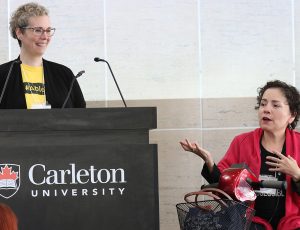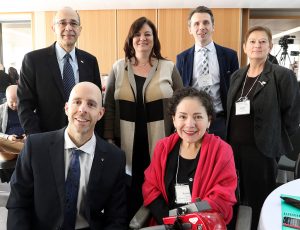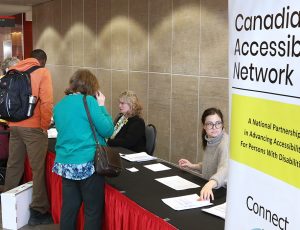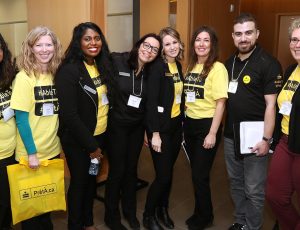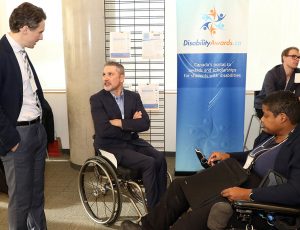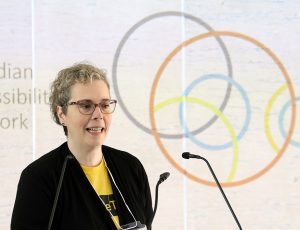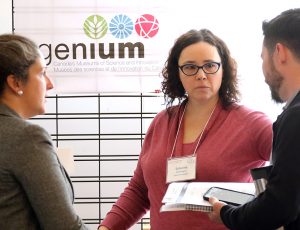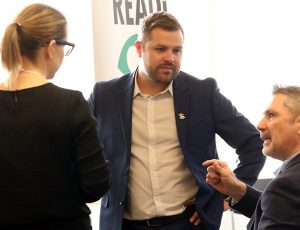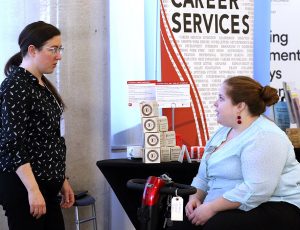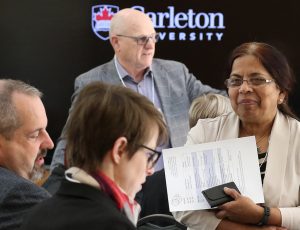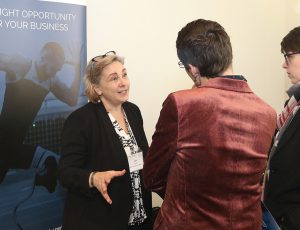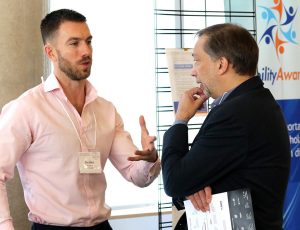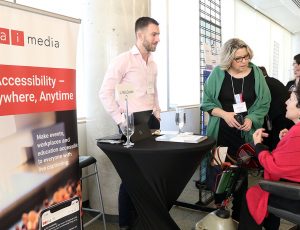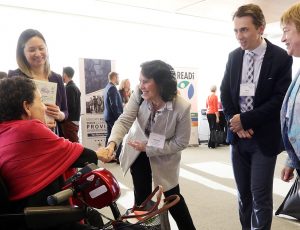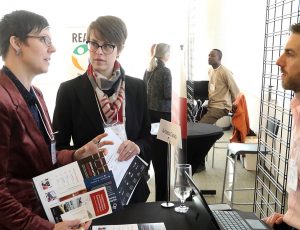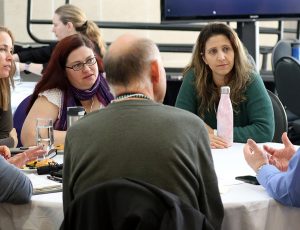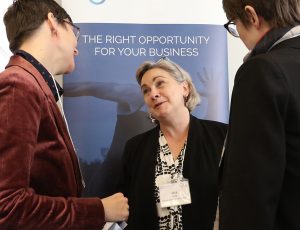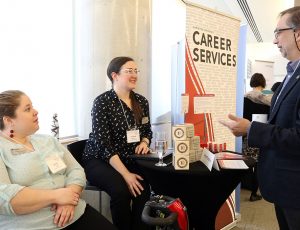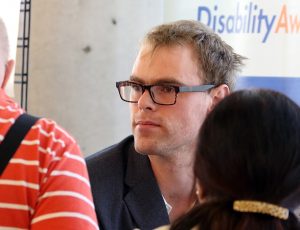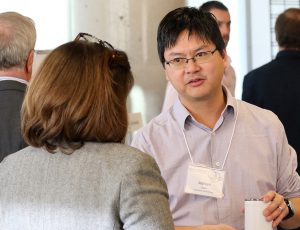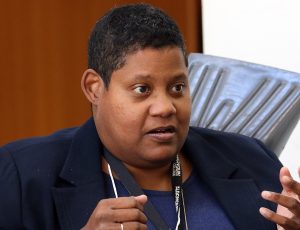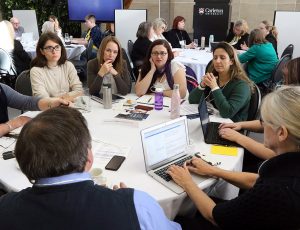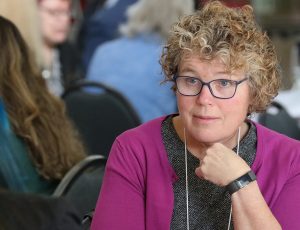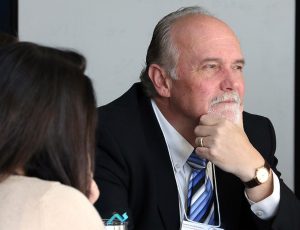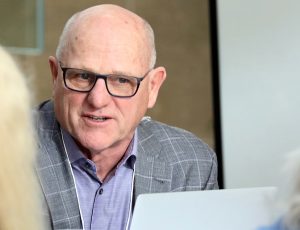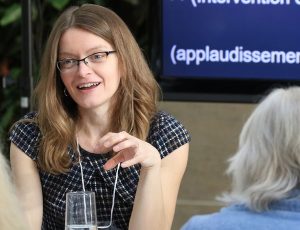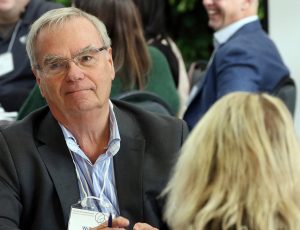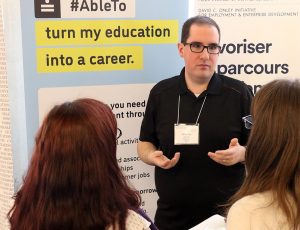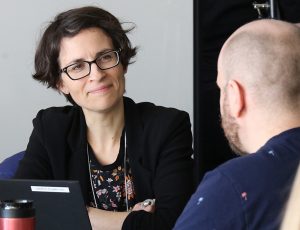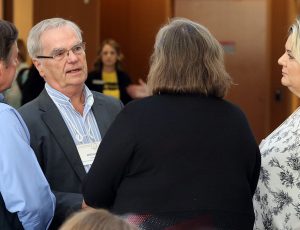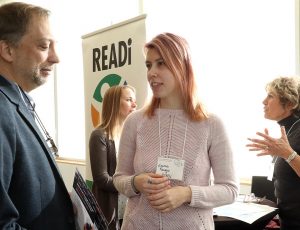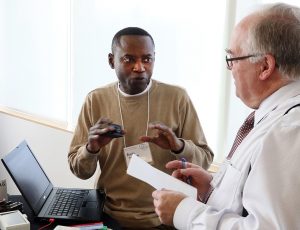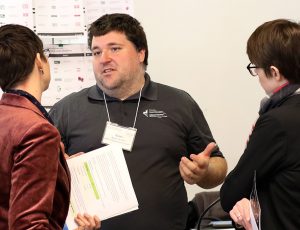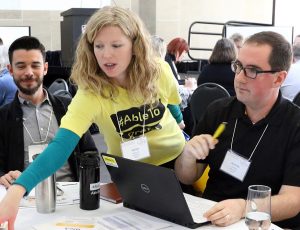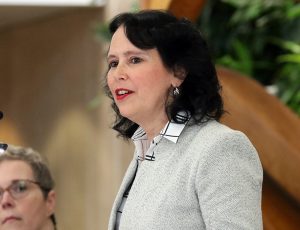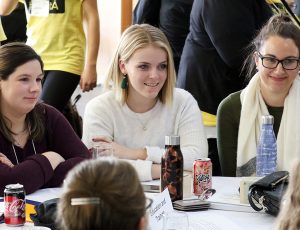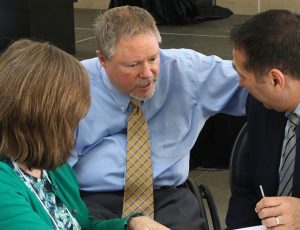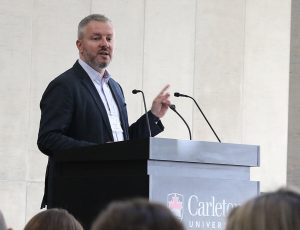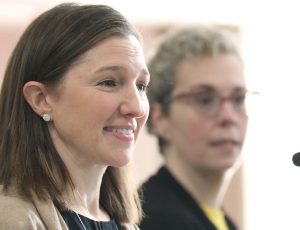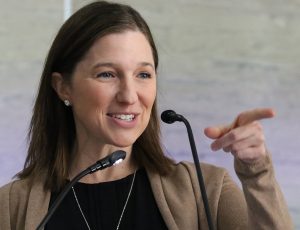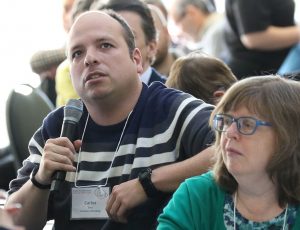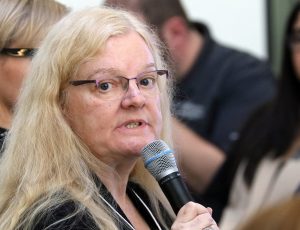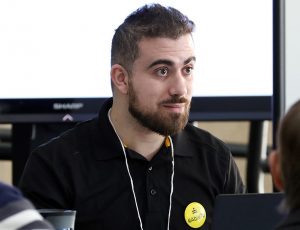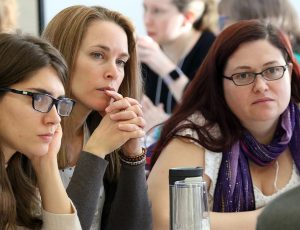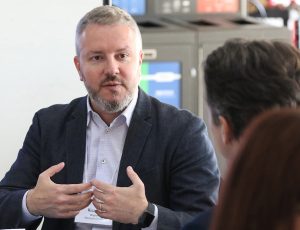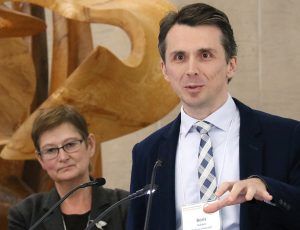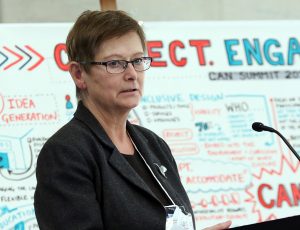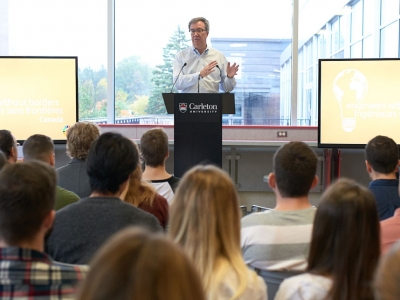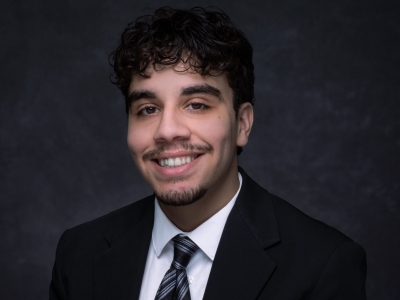By Tyrone Burke
Photos by Mike Pinder
“All too often, when someone who lives with a disability joins an organization, it’s a bit of crapshoot as to whether they’re actually going to be able to get into the building and get the equipment they need to do their job,” Philip Rizcallah told a keynote address at the launch of the Canadian Accessibility Network (CAN) based at Carleton University.
CAN is bringing together experts from diverse disciplines to drive collaboration on accessibility issues. The launch was attended by academics, industry, representatives of government, and accessibility NGOs from across Canada. Rizcallah was one of them. He’s the CEO of the Canadian Accessibility Standards Development Organization and has spent 30 years working on building codes for the federal government.
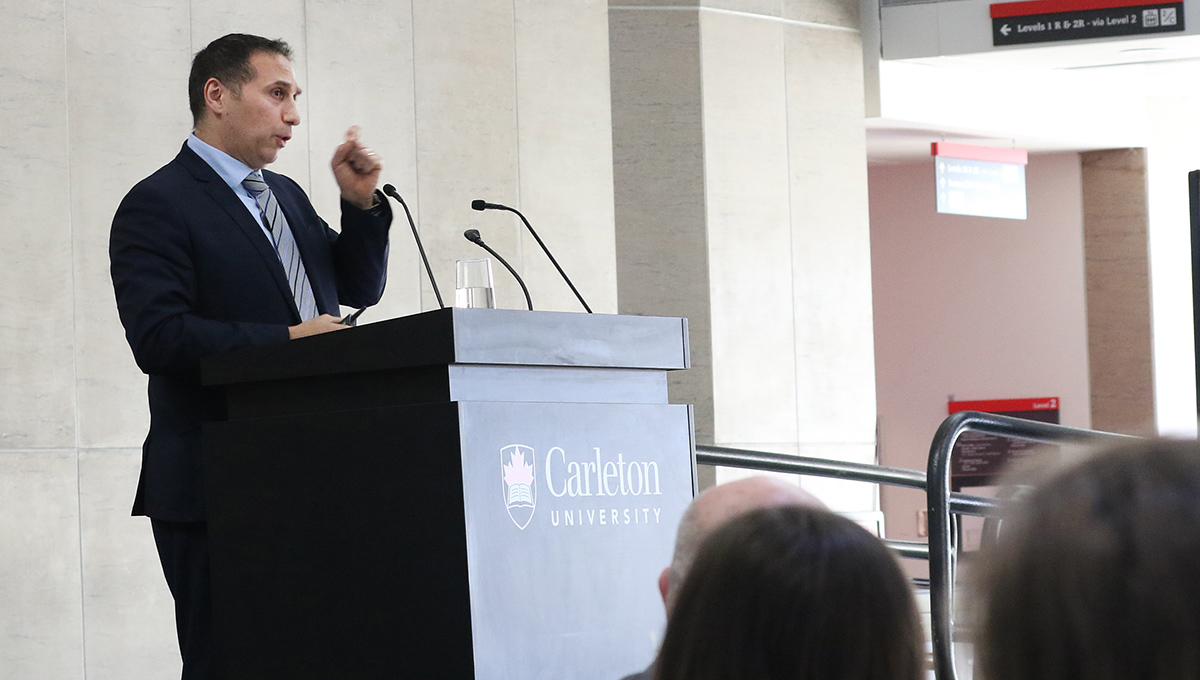
Philip Rizcallah
“The National Building Code has a small section with accessibility requirements, but sets them at the minimum acceptable level,” he said.
“They try to make it good for persons with disabilities, but they want something that is low cost, fits with the design and doesn’t change the appearance of a building very much. They’re just trying to meet that minimum threshold.”
The new Accessible Canada Act aims to make Canada more accessible by looking to the world’s best practices to develop new standards and codes.
“Within the committees that develop these, there have been very few people with lived experience,” Rizcallah said.
“The mandate on accessibility was falling behind expectations. Now, we’ll have accessibility actors come in and say: ‘Why don’t we design this so that everybody is afforded the same level of respect and acceptance in society?’”
But making Canada accessible isn’t only a matter of building codes.
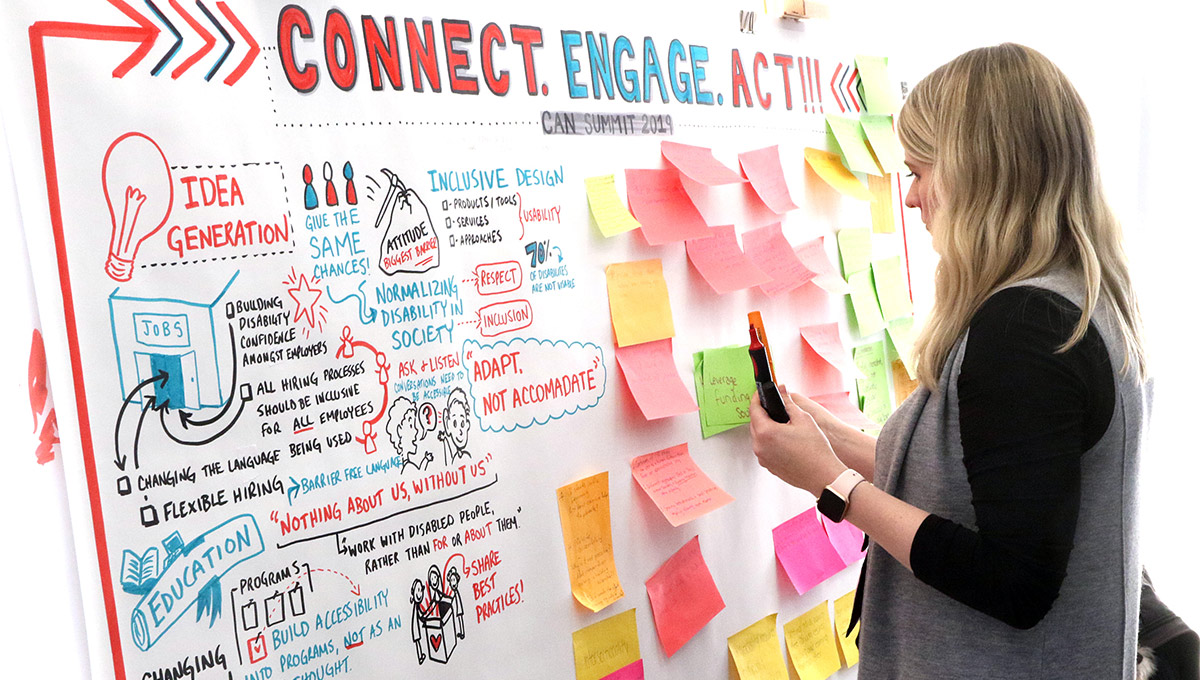
Canadian Accessibility Network:
Tackling Complex Social Issues
“We are talking about very complex social issues, and it’s absolutely essential to bring together different perspectives across sectors,” says Boris Vukovic, who drove the creation of CAN, and serves as director of Carleton’s READ Initiative. READ stands for Research, Education, Accessibility and Design,and it’s seeking to establish Carleton as a Centre of Excellence in Accessibility.
“Disability is a broad social issue and we have been operating in silos that have very specific specializations – biomedical engineering, health sciences, social justice.”
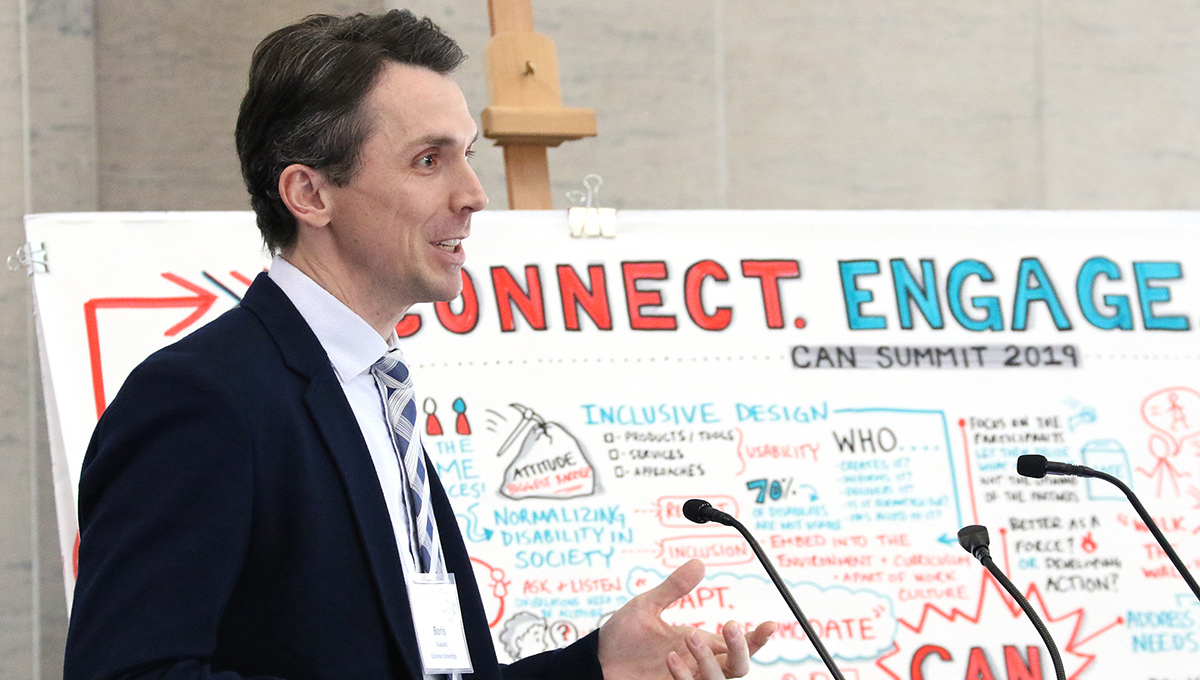
Boris Vukovic
The CAN launch brought together experts from across the country and encouraged them to collaborate on specific, actionable projects in key domains – research, design and innovation, education and training, employment, policy, and community engagement.
Ricardo Wagner, Accessibility Lead for Microsoft Canada, spoke about how the world of AI is opening the door to a new wave of possibility.
“At Microsoft, our ambition is to create products that are physically, cognitively, and emotionally appropriate for users. It starts with seeing human diversity as a resource for better designs that drive business outcomes and social impact.”
Sessions invited participants to explore notions like this and the possibility of what they could accomplish by working together. Many of the opportunities identified will help shape the network’s outcomes.
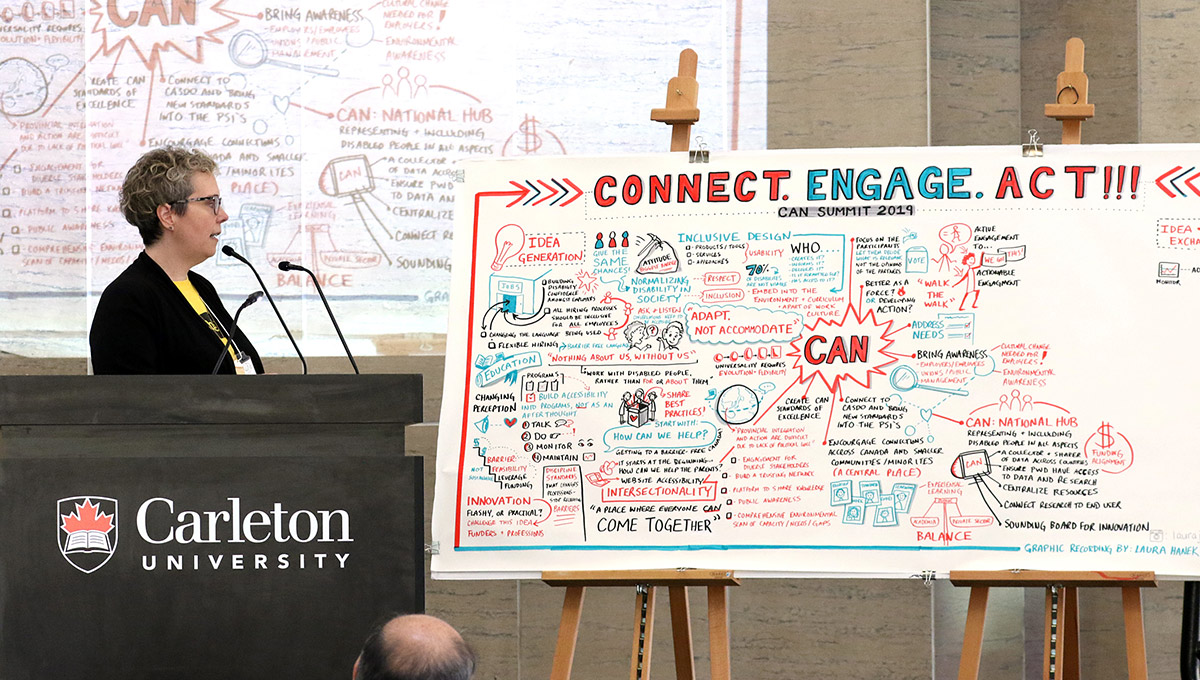
The Power of a Network
“It’s powerful,” said Yazmine Laroche, deputy minister for Public Service Accessibility, who also spoke at the event.
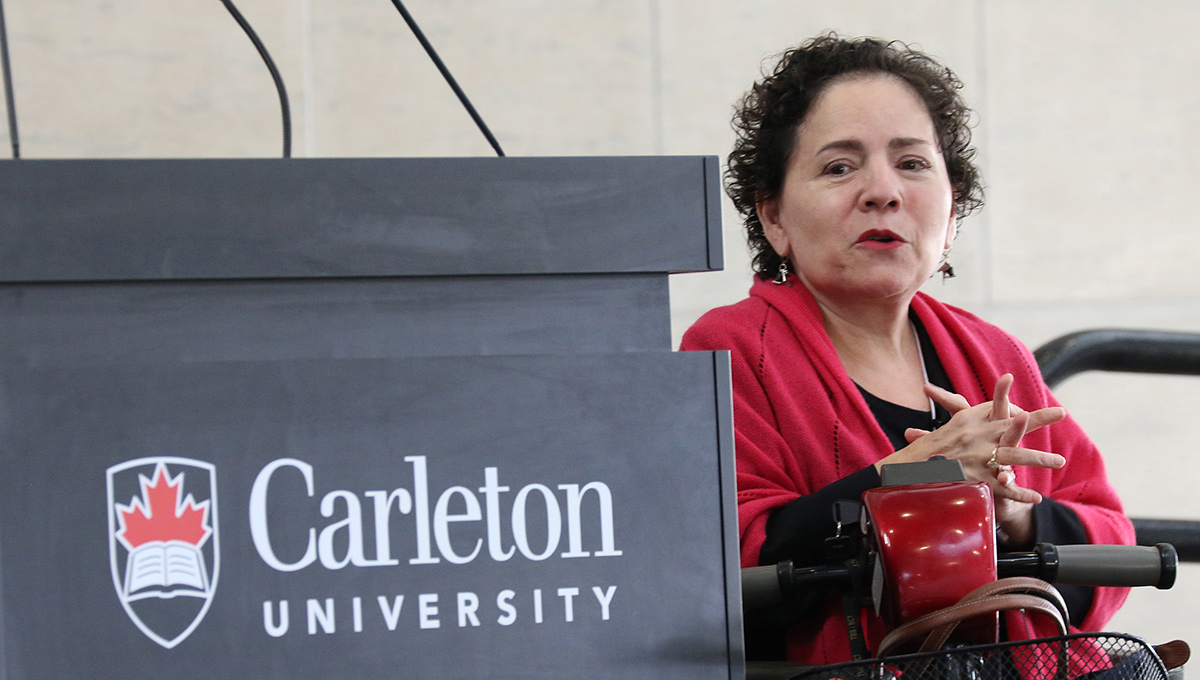
Yazmine Laroche, Deputy Minister, Public Service Accessibility
“Harnessing the skills and the talents of different members of the network is critical to making change happen.
“I love the conversations that we are having and the idea that everybody here understands that disability and accessibility are gateways to innovation – they can make things better for everybody.”
The Accessibility Canada Act received royal assent in June and that was one catalyst for CAN, but taking a leadership role in accessibility is a natural fit for Carleton. The university is a leader in accessibility research and the Paul Menton Centre for Students with Disabilities excels in student services.
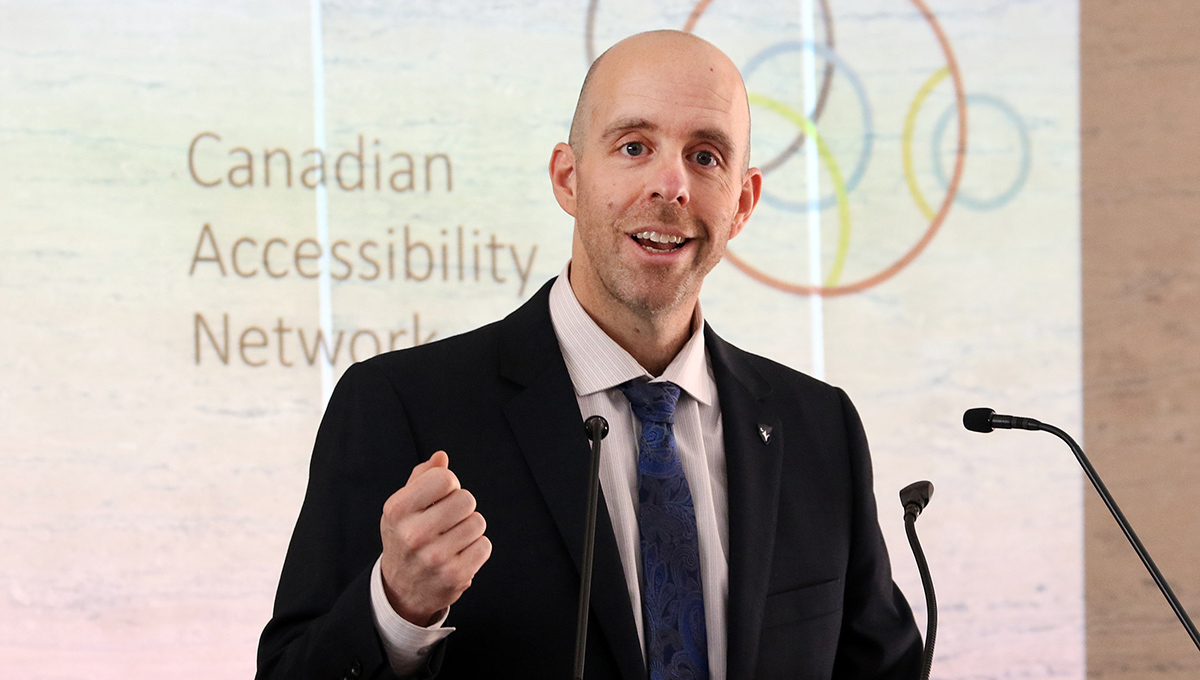
Carleton University President Benoit-Antoine Bacon
“Accessibility affects all aspects of the lived experience of persons with disabilities and it benefits all Canadians,” said Carleton President Benoit-Antoine Bacon. “Best practices in accessibility, it turns out, are simply best practices.”
“No one discipline can solve all of the outstanding problems in accessibility, but there is potential in each sector to make change. Higher education, public policy, non-profits and industry all have a role to play and everyone can contribute. Carleton’s own work in accessibility and disabilities brings together faculty, staff and students across disciplines. We have seen how valuable such an approach can be and want to do the same across the country.”
For more information on CAN, please go to: https://carleton.ca/read/can/.
Friday, December 6, 2019 in Accessibility, Paul Menton Centre, READi
Share: Twitter, Facebook
